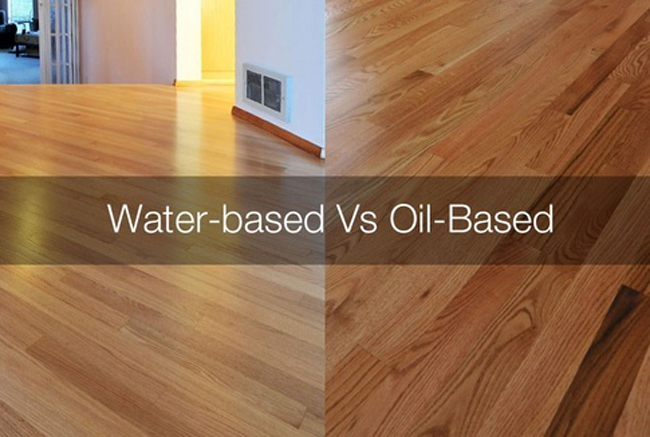Consider applying a protective coating to your hardwood floors, furniture, or other wood surfaces. In that case, you may have heard about two popular options: water-based polyurethane and oil-based polyurethane. While both products are designed to provide a durable finish, they have several key differences. In this article, we’ll explore each type of polyurethane, why they are used, and the differences between water- and oil-based polyurethane.

What is Water-Based Polyurethane?
Water-based polyurethane is a coating made with synthetic resins suspended in water. When the water evaporates, the resins form a protective film over the wood surface. Water-based polyurethane is known for its low odor, fast drying time, and low VOC levels (volatile organic compounds).
Why do we use Water-Based Polyurethane?
Water-based polyurethane is a popular choice for those who want a clear, environmentally friendly, protective coating that is easy to apply. It dries quickly and can be recoated in a shorter time frame than oil-based polyurethane. It also has a lower odor and is easier to clean since you can remove it with soap and water.
What are the Differences between Water-Based Polyurethane and Oil-Based Polyurethane?
The main differences between water-based polyurethane and oil-based polyurethane are their appearance, durability, and application process. Water-based polyurethane typically has a clear, transparent finish that will not turn yellow over time. On the other hand, oil-based polyurethane may have an amber tint that can darken over time. Oil-based polyurethane tends to be more durable than water-based polyurethane and can provide a thicker coating better suited for high-traffic areas. However, oil-based polyurethane has a longer drying time and may require more coats to achieve the desired level of protection.
What is Oil-Based Polyurethane?
Oil-based polyurethane is a type of coating made with synthetic resins that are suspended in oil. When the oil evaporates, the resins form a protective film over the wood surface. Oil-based polyurethane is known for its durability and ability to provide a glossy finish.
Why do we use Oil-Based Polyurethane?
Oil-based polyurethane is popular for those who want a highly durable, glossy finish that can withstand heavy traffic and wear. It can also provide a richer color to the wood surface. However, oil-based polyurethane has a longer drying time and can emit higher VOC levels than water-based polyurethane.
Conclusion
Choosing between water- and oil-based polyurethane will depend on your specific needs and preferences. Water-based polyurethane is a more environmentally friendly option that is easy to apply and dries quickly but may not be as durable as oil-based polyurethane. Oil-based polyurethane provides a highly durable, glossy finish but has a longer drying time and may emit higher VOC levels. Be sure to consider the pros and cons of each before deciding on which product to use for your project.


